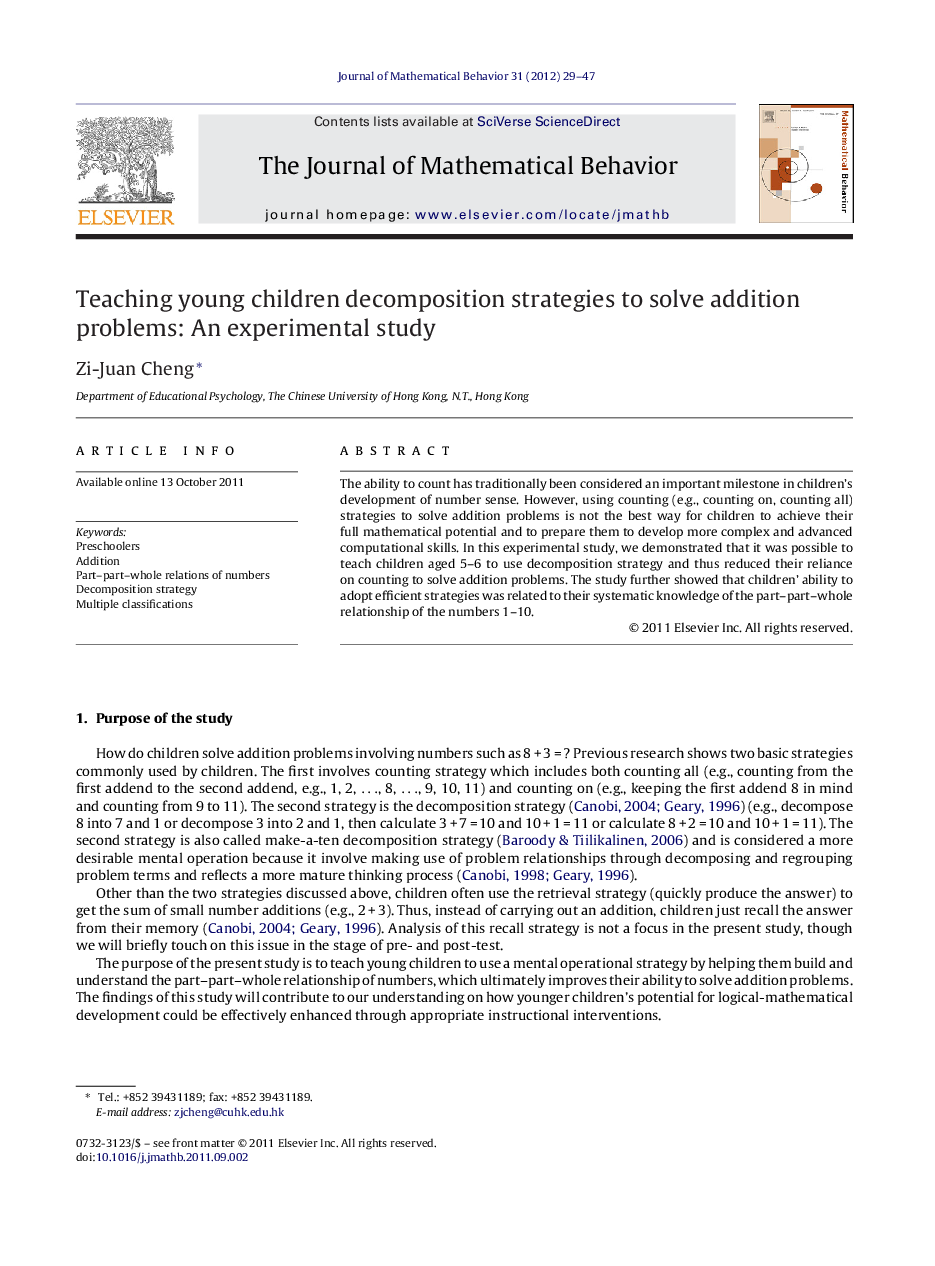| کد مقاله | کد نشریه | سال انتشار | مقاله انگلیسی | نسخه تمام متن |
|---|---|---|---|---|
| 360722 | 1436026 | 2012 | 19 صفحه PDF | دانلود رایگان |

The ability to count has traditionally been considered an important milestone in children's development of number sense. However, using counting (e.g., counting on, counting all) strategies to solve addition problems is not the best way for children to achieve their full mathematical potential and to prepare them to develop more complex and advanced computational skills. In this experimental study, we demonstrated that it was possible to teach children aged 5–6 to use decomposition strategy and thus reduced their reliance on counting to solve addition problems. The study further showed that children’ ability to adopt efficient strategies was related to their systematic knowledge of the part–part–whole relationship of the numbers 1–10.
Figure optionsDownload as PowerPoint slideHighlights
► The hypotheses have been evidenced in the results of the present study, which show that it is possible to encourage 5-year-old children to use the decomposition strategy to solve addition problems.
► That the children were capable to use the decomposition strategy benefited from their successful performance of doing multiple classification tasks.
► Therefore, the results point to the discussion of the connecting between children's improvement in understanding the part–part–whole relations of numbers, their application of advanced addition strategies, and their capability to perform multiple classifications.
► The conclusions from the present study further support recent studies about that younger children are already beginning to perform Logico-math (Lee and Ginsburg, 2009 and Starkey and Klein, 2008).
Journal: The Journal of Mathematical Behavior - Volume 31, Issue 1, March 2012, Pages 29–47